
Tisagenlecleucel-T (CTL019) met its primary endpoint for best objective response rate in patients with relapsed or refractory diffuse large B-cell lymphoma.

Your AI-Trained Oncology Knowledge Connection!


Tisagenlecleucel-T (CTL019) met its primary endpoint for best objective response rate in patients with relapsed or refractory diffuse large B-cell lymphoma.

Brad S. Kahl, MD, professor, Department of Medicine, Oncology Division, Washington University School of Medicine, discusses ADCT-402 for patients with relapsed/refractory B-cell lineage non-Hodgkin lymphoma.
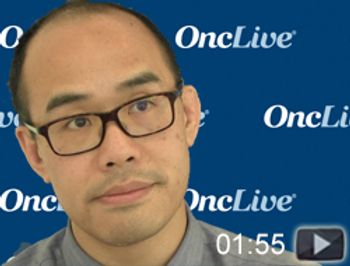
Constantine S. Tam, MD, associate professor, Peter MacCullum Cancer Centre, discusses the phase II and phase III studies investigating the combination of ibrutinib (Imbruvica) plus venetoclax (Venclexta) for patients with mantle cell lymphoma (MCL).

In recognition of the potential for real-world evidence to significantly improve the way patients with cancer are treated, CancerLinQ has formed new partnerships with the US government that are expected to coordinate the sharing of patient data and incorporate that information into the FDA regulatory process.

Patients with T790M-positive non–small cell lung cancer had superior outcomes when treated with osimertinib (Tagrisso) for central nervous system metastases, according to phase III results presented at the 2017 ASCO Annual Meeting.
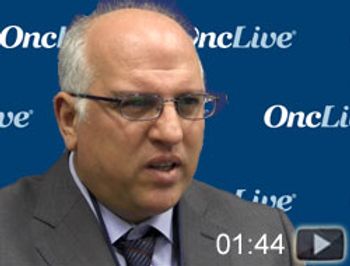
Paolo A. Ascierto, MD, director at the Unit of Melanoma, Cancer Immunotherapy and Innovative Therapy, National Tumor Institute Fondazione G. Pascale, discusses findings from a phase Ib/II dose-escalation study evaluating the triple combination therapy with encorafenib, binimetinib, and ribociclib (Kisqali) in patients with BRAF V600-mutant solid tumors and melanoma.
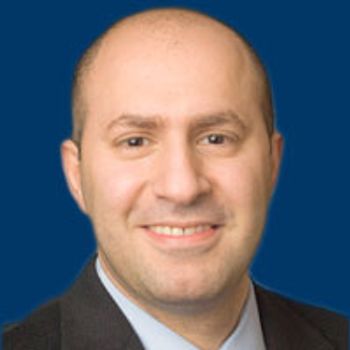
Combining the PD-L1 inhibitor avelumab (Bavencio) with the VEGF inhibitor axitinib (Inlyta) as a frontline regimen induced a response rate of 58.2% in patients with advanced renal cell carcinoma, according to findings from the phase Ib JAVELIN Renal 100 trial presented at the 2017 ASCO Annual Meeting.
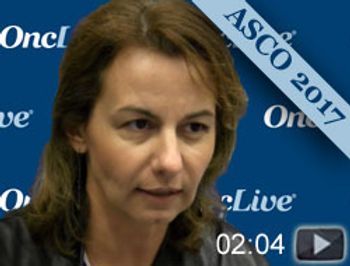
Marina Chiara Garassino, MD, medical consultant in the Medical Oncology Division, Fondazione IRCCS Istituto Nazionale dei Tumori, Milan, Italy, discusses a subset analysis of the AURA3 trial, which demonstrated significant clinical activity with osimertinib (Tagrisso) for patients with EGFR T790M-mutation positive non–small cell lung cancer (NSCLC) who also harbor brain metastases.

H. Jack West, MD, a thoracic oncologist of Swedish Cancer Institute at Swedish Medical Center, discusses some potential emerging changes coming to the field of EGFR-mutant non–small cell lung cancer (NSCLC), including next-generation EGFR inhibitors such as osimertinib (Tagrisso) that is now being explored in the FLAURA trial as a frontline treatment for these patients.
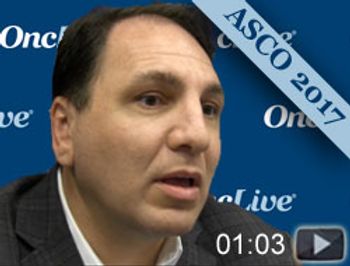
Ali McBride, PharmD, MS, BCPS, clinical coordinator, Hematology/Oncology, secretary, Association of Community Cancer Centers (ACCC), discusses the importance with and excitement of oral oncolytics.
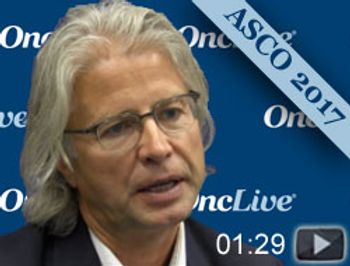
Gunter von Minckwitz, MD, PhD, president of the German Breast Group in Neu-Isenburg, Germany, discusses the phase III results of the APHINITY trial, which explored the addition of pertuzumab (Perjeta) to standard postoperative trastuzumab (Herceptin) therapy for patients with HER2-positive early breast cancer.
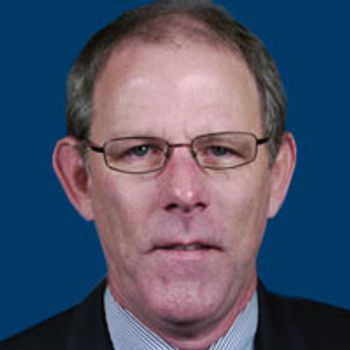
Combining the PD-1­ inhibitor pembrolizumab with the IDO1 inhibitor epacadostat led to an overall response rate of 35% in patients with advanced urothelial carcinoma.
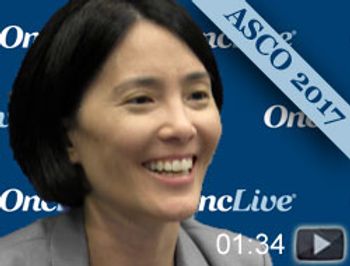
Alice T. Shaw, MD, PhD, associate professor of medicine, Harvard Medical School, attending physician, Thoracic Cancer Program, Massachusetts General Hospital, discusses the phase III results of the international ALEX trial, which compared the alectinib (Alecensa) with crizotinib (Xalkori) in the frontline setting for patients with ALK-positive, metastatic non–small cell lung cancer (NSCLC).

The combination of the IDO inhibitor epacadostat and nivolumab demonstrated promising signs of activity for patients with squamous cell carcinoma of the head and neck and those with melanoma.
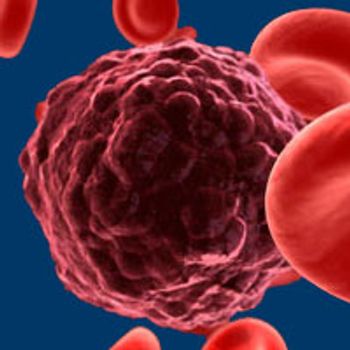
Early results from a Chinese study showed that 33 of 35 patients (94%) with relapsed or refractory multiple myeloma experienced clinical remission after treatment with chimeric antigen receptor T cells targeting B-cell maturation protein.

Dacomitinib, a second-generation EGFR inhibitor, reduced the risk of disease progression by more than 40% and resulted in an average 6.5-month improvement in response duration compared with gefitinib (Iressa) as a first-line treatment for patients with advanced, EGFR-mutant non–small cell lung cancer.

The addition of pertuzumab (Perjeta) to standard postoperative trastuzumab (Herceptin) therapy for patients with HER2-positive early breast cancer slightly improved the rate of recurrence overall but had a greater benefit for individuals with higher-risk disease, particularly as more time elapsed, according to early results from the phase III APHINITY trial.
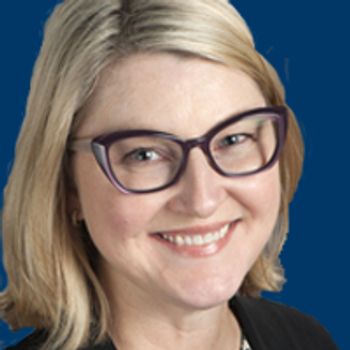
Frontline treatment with nintedanib plus pemetrexed and cisplatin improved progression-free survival by 3.7 months for chemotherapy-naive patients with malignant pleural mesothelioma, according to data reported at the 2017 ASCO Annual Meeting.

Nivolumab as monotherapy or in combination with ipilimumab may present a new second- or third-line treatment option for patients with malignant pleural mesothelioma, based on preliminary findings from a phase II trial where nivolumab alone or in the combination improved disease control and prolonged survival in patients with this rare but aggressive cancer.

In patients with ALK-positive non-small cell lung cancer, the second-generation TKI inhibitor alectinib (Alecensa) delayed progression by an additional 15 months compared with the standard-of-care crizotinib (Xalkori).

Pembrolizumab (Keytruda) showed durable antitumor activity in patients with heavily pretreated metastatic triple-negative breast cancer (TNBC), according to findings from cohort A of the phase II KEYNOTE-086 trial presented at the 2017 ASCO Annual Meeting.
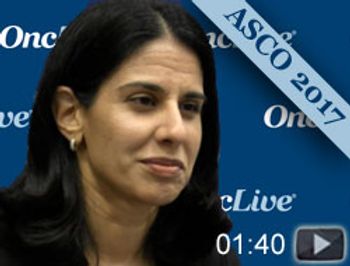
Sara M. Tolaney, MD, MPH, instructor of medicine, Harvard Medical School, attending physician of medical oncology, Dana-Farber Cancer Institute, discusses the results of a phase II trial exploring the efficacy of abemaciclib as a treatment of brain metastases that are secondary in patients with hormone receptor (HR)-positive,HER2-negative breast cancer.
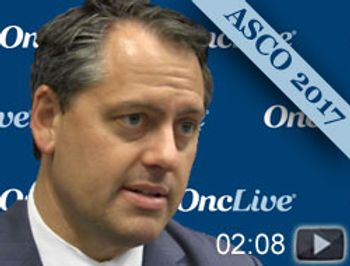
Jeff Sharman, MD, medical director, Hematology Research, The US Oncology Network, discusses the phase III findings of the GENUINE study, the combination of ublituximab (TG-1101) and ibrutinib (Imbruvica) for patients with previously treated high-risk chronic lymphocytic leukemia (CLL).
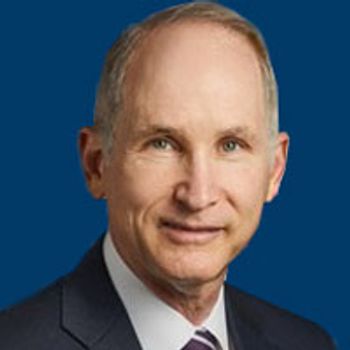
Pembrolizumab continued to show promising signs of clinical activity as a treatment for patients with advanced gastric or gastroesophageal junction cancer in updated findings from the KEYNOTE-059 study.

Nivolumab plus ipilimumab demonstrated an intracranial response rate of 42% in asymptomatic patients with melanoma brain metastases who had not received prior local therapy to the brain.

Induction therapy with fludarabine and rituximab followed by lenalidomide consolidation therapy (FR-L) demonstrated a distinct plateau in overall survivalbeyond that seen with FR or FR plus cyclophosphamide (FCR) alone for patients with symptomatic, untreated non-del(11q) chronic lymphocytic leukemia.
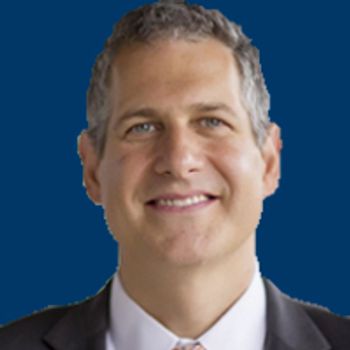
Patients receiving treatment for metastatic cancer who used a web-based tool to report their symptoms either while at home or during clinic visits lived on average 5 months longer than their counterparts who had standard symptom monitoring, according to findings of a randomized trial reported at the 2017 ASCO Annual Meeting.

Most patients with low-risk advanced colon cancer would benefit from a 50% reduction in the oxaliplatin-containing chemotherapy they typically receive after surgery without notably increasing their risk of recurrence and while markedly decreasing the likelihood that they will develop neuropathy, according to an analysis that challenges the current standard of care and paves the way for a more personalized approach.
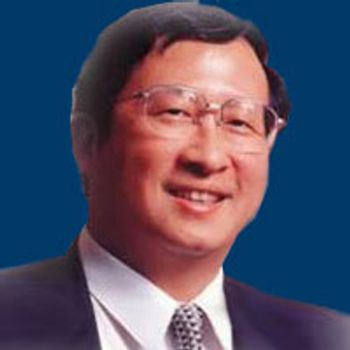
First-line treatment with lenvatinib (Lenvima) improved progression-free survival by 3.7 months and was noninferior for overall survival compared with sorafenib for patients with unresectable hepatocellular carcinoma.
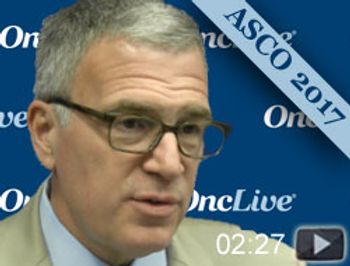
Mark S. Soberman, MD, MBA, FACS, was elected as the 2017-2018 President of the Association of Community Cancer Centers (ACCC) discusses his vision for the next generation of multidisciplinary care in an interview during the 2017 ASCO Annual Meeting.